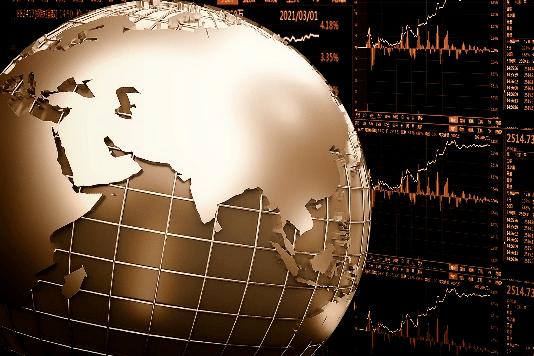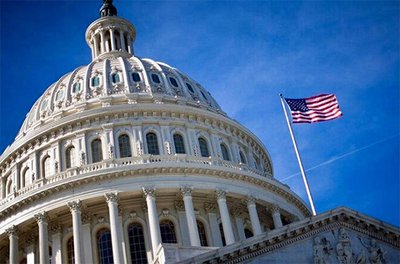
In today's era of increasing globalization, the economic fates of nations have never been more closely linked. However, in recent years, the complexity and volatility of geopolitics have been like an undercurrent, constantly impacting the stability and development of the global economic system. The geopolitical rift, a seemingly distant concept, is actually quietly changing the trajectory and prospects of global economic growth. The purpose of this paper is to explore in depth how the geopolitical rift affects the global economic growth, and to analyze the logic behind it, the impact path and the response strategy.
Geopolitical rift, in short, refers to the political tension and even conflict between countries due to territorial disputes, resource competition, ideological differences and other factors. These cracks not only exist in the traditional sense of great power game, but also widely spread to regional hot issues and emerging economies. With the advancement of globalization, the interdependence between countries is deepening, but at the same time, more conflicts of interests are exposed.
At present, the geopolitical rift shows several striking characteristics. First, it is wide ranging, from the heart of Eurasia to the turmoil in the Middle East to the maritime rights disputes in the Far East, all of which are affected by geopolitical factors; Second, there are various forms, including direct risks of military confrontation, as well as indirect means such as economic sanctions and trade wars. Third, the impact is far-reaching. Geopolitical turmoil not only concerns national security, but also poses severe challenges to global economic stability and growth.
The direct impact of geopolitical rifts on global economic growth
Trade disruptions and increased investment uncertainty: Geopolitical tensions often lead to high trade barriers, increased tariff and non-tariff barriers, and significant disruptions to cross-border trade and investment activities. Enterprises choose to wait and see or withdraw due to concerns about abrupt policy changes and market risks, resulting in reduced capital flows and weaker economic growth momentum.
Supply chain disruption and industrial restructuring: The highly integrated global production network makes a break in any link likely to trigger a chain reaction. Geopolitical conflicts can disrupt supplies of key raw materials, stall production lines, force companies to reassess supply chain layouts, and even trigger industrial restructuring around the world, a time-consuming and costly process that is a heavy burden on economic growth.
Increased volatility in financial markets: Geopolitical uncertainty is an important driver of volatility in financial markets. Investor confidence is frustrated and risk aversion is rising, resulting in capital flowing to safe assets, such as gold and the US dollar, while risky assets, such as the stock market and commodities, may be sold off. Instability in the financial market further inhibits investment and consumption, dragging down economic growth.
Energy and food security threats: Geopolitical rifts also often involve competition for strategic resources such as energy and food. Energy supply disruptions and soaring food prices not only affect people's lives, but also exacerbate inflationary pressures, posing a direct threat to global economic stability.
The indirect impact of geopolitical rifts on global growth
Lower Confidence and expectations: Geopolitical uncertainty has weakened market participants' confidence and expectations about future economic trends. Businesses cut investment and consumers cut spending, creating a "cycle of pessimism" that further dampened the economy's growth potential.
International cooperation is hampered: Geopolitical rifts exacerbate suspicion and mistrust among countries, challenging multilateral cooperation mechanisms. On global issues such as climate change and epidemic prevention and control, the lack of international cooperation will delay the process of solving problems and indirectly affect the sustainable development of the global economy.
Hindered technological cooperation and innovation: Technological innovation is an important driving force for economic growth. However, geopolitical rifts can lead to technology blockades and intellectual property disputes, hinder international technology exchange and cooperation, weaken the global innovation system, and have a profound impact on economic growth in the long run.
In general, the geopolitical rift is an important factor affecting global economic growth that cannot be ignored. In the face of the complex and volatile international situation, countries need to keep a clear head, strengthen communication and cooperation, jointly meet challenges, and push the global economy toward more stable and sustainable development.

In early December, US stocks staged their most dramatic intraday reversal in months. Driven by the dual positive catalysts of chip giant NVIDIA's better-than-expected earnings report and a "Goldilocks" nonfarm payrolls report, the S&P 500 index surged as much as 1.9% within the first hour of trading.
In early December, US stocks staged their most dramatic int…
On December 5, 2025, the European Union fined Musk's social…
Since October 2025, there has been a week of intense fighti…
On the global economic stage of 2025, the U.S. economy is s…
Recently, the head of Apple's artificial intelligence and t…
On December 5, 2025, the Office of the Compilers of the Cur…